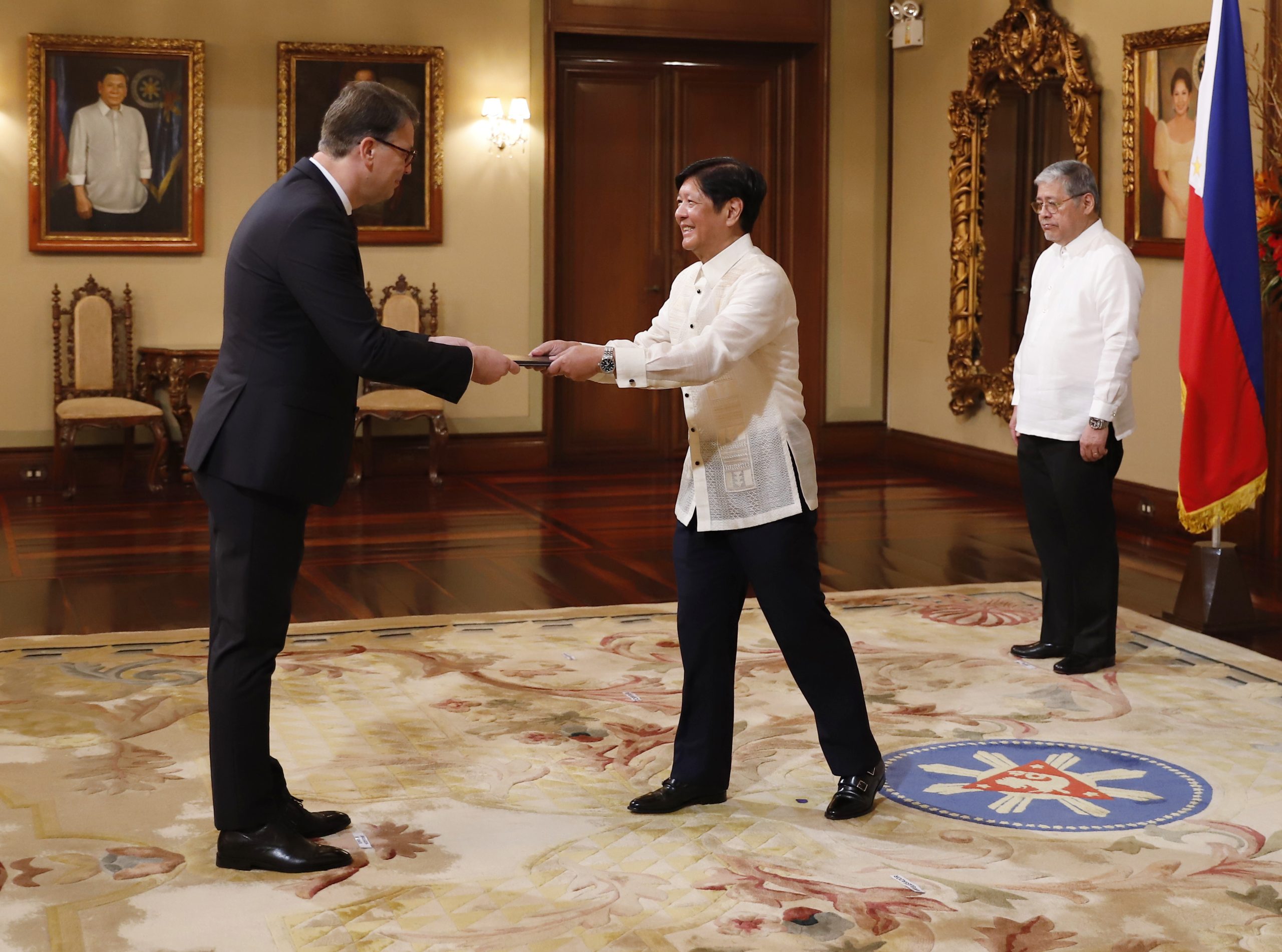News
PH, Lithuania seek partnership on laser tech, cybersecurity, education

PRESENTATION OF CREDENTIALS. President Ferdinand R. Marcos Jr. receives the credentials of Lithuanian Non-Resident Ambassador to the Philippines Ricardas Slepavicius at Malacañan Palace on Tuesday (Oct. 3, 2023). During the meeting, the Philippines and Lithuania sought to enhance their partnership in the fields of technology, cybersecurity, education, and people-to-people exchanges. (PNA photo by Alfred Frias)
MANILA – The Philippines and Lithuania have sought partnerships in the fields of technology, cybersecurity, education, and people-to-people exchanges, Malacañang said on Wednesday.
In a statement, Presidential Communications Office (PCO) Secretary Cheloy Garafil said the commitment was made during the presentation of credentials of Lithuanian Non-Resident Ambassador to the Philippines Ricardas Slepavicius to President Ferdinand R. Marcos Jr. in a ceremony at Malacañan Palace in Manila on October 3.
“The Philippines and Lithuania agreed on Tuesday to collaborate on areas of technology, cybersecurity, education, and people-to-people exchanges to address various challenges,” Garafil said.
Garafil said Slepavicius had told Marcos that the Philippines and Lithuania could address mutual concerns through technological solutions.
“We cannot neglect distance… But I believe we have some technological solutions which could be interesting for [the] Philippines. For example, for cyber securities, on the economy, green energy, on biotech, we could share our experiences and help companies or Philippines [do] business there,” Slepavicius said, as quoted by the PCO.
“I would believe that would be a basis for our future economic cooperation, create … classical one but we are thinking about corporation or partnership which could bring us together. And definitely, we do have some technological solutions, [that] could be interesting,” he added.
Slepavicius also noted that Lithuania is a pioneer in laser development and production, capturing 10 percent of the global market for scientific lasers.
He said Lithuania could work with the Philippines on laser technology, stressing that the two nations’ universities and scientific communities could partner for the production and development of good-quality lasers.
“[That] could be in a scientific area. Say we have a small nation with specific expertise which we do have, we could really be good partners for your business, your universities, scientific institutions,” Slepavicius told Marcos.
Marcos agreed with the Lithuanian envoy, saying the solutions to the challenges the two nations are facing “would come from technology.”
“I mean from the educational [benefit] of students in the science and technical studies, all the way to actually being able to apply the research that is being developed, not only here in the Philippines, but in other places as well — anything that is applicable, these are the things that’s going to solve the problems that we face now,” he said.
Marcos also expressed interest in the production of scientific lasers and lasers in general.
Slepaviciya said the two nations could also improve their relationship through sports by organizing special basketball projects.
The Philippines and Lithuania established formal diplomatic relations on Dec. 15, 1991.





















